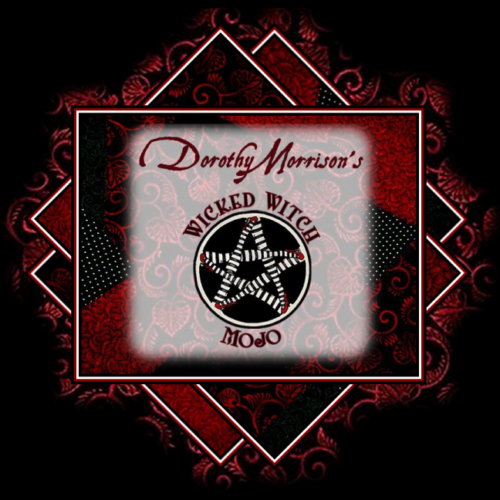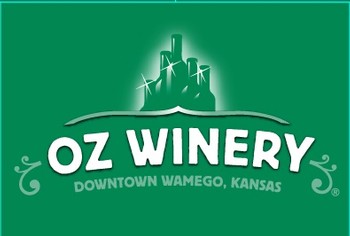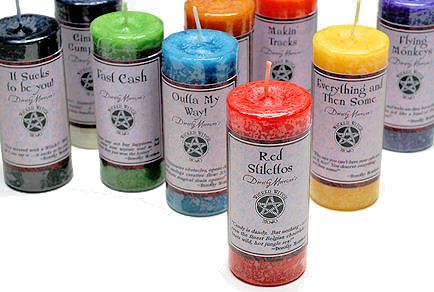TWH – Turner Entertainment Company has filed an opposition with the U.S. Patent and Trademark Office to stop witch and Pagan elder Dorothy Morrison from trademarking her brand name ‘Wicked Witch Mojo.” Turner Entertainment, a subsidiary of AT&T’s WarnerMedia, serves as the copyright holder for a large library of productions made by its sister subsidiary Warner Bros. Entertainment Inc. (aka, Warner Brothers), that includes The Wizard of Oz (1939). In 2001, Turner successfully trademarked the terms “Wicked Witch” and “Wicked Witch of the West.” In 2008, the company trademarked “Wicked Witch of the East” and expanded that of “Wicked Witch”. Then, in 2014, it trademarked “Wicked Wiches” [sic] It is for this reason that Turner has decided to file an opposition notice in response to Morrison’s own attempt to trademark her business name.

Morrison said, “I was stunned. I couldn’t believe that Turner Entertainment could have A] been allowed to trademark the phrase ‘Wicked Witch,’ and B] that they had accused me of deliberately weakening their trademark.”
She said that, after the shock wore off, she was just angry. “It occurred to me that if Turner saw fit to go after me, there was nothing to stop them from going after anyone in the magical community who’d ever used that phrase. And I couldn’t, in good conscience, allow that to happen,” she explained.
She contacted her lawyer, and now there is a case pending. “I wasn’t sure I could afford to fight Turner all the way, but I felt that I at least had to file a legal answer to their opposition.”
Since 2000, Turner has been tightening its control over the use of its popular property The Wizard of Oz, which it says in the opposition document, “is one of the most well-known and beloved films ever made.” While most of L. Frank Baum’s original books are in the public domain, the movie is still under copyright. And,Turner has trademarked a large number of terms related to the film.
In 2012, according to the Hollywood Reporter, [Turner] became “one of the most aggressive filers of oppositions at the USPTO’s Trademark Trial & Appeal Board, especially over The Wizard of Oz.” That opposition even included a highly visible case against The Walt Disney Company, who was attempting to trademark the title “Oz, the Great and Powerful,” the name of its new film. According to reports, Turner “quietly” trademarked the title first in an attempt to stop Disney. When Disney filed, Turner opposed. But Disney filed an opposition right back. In the end, Disney lawyers won the trademark battle for a majority of the marketing materials they had wanted.
The 2012 Hollywood Reporter article goes on to illustrate the large number of oppositions filed by Turner:
The company has gone after potential merchandise associated with Dorothy of Oz, a $60 million-budgeted animation film scheduled to be released later this year by Summertime Entertainment. Warners also has attacked registrations on a series of neuroscience books entitled “If I Only Had A Brain,” a restaurant called “Wicked ‘Wiches Wickedly Delicious Sandwiches,” a clothing line known as “Wizard of Azz,” Halloween costumes under the brand name “Wicked of Oz,” and dozens of other Oz-related marks. One pending case at the TTAB is especially enlightening. It concerns wines being marketed in the state of Kansas. Among them are “Dorothy of Kansas and Toto Wine,” “Ruby Slippers Wine,” “Broomstick Wine,” “The Lion’s Courage,” and “Flying Monkey Wine.”
The Winkie River Company, LLC, who owns the Oz Winery aptly located in Kansas, has been fighting its battle since 2011. In that case, Turner is objecting to the company’s attempt to trademark and use words like “Tin Man”, “Drunken Munchkin”, and “Cowardly Lion” for its wines. These are other terms that the media company has trademarked, along with “Wicked Witch.”

The courts have allowed Turner to protect the unique characters in The Wizard of Oz, but not other aspects of the movie, and that is where distinctions are made in the legal battles.
In the winery’s case, attorney Bruce Clark said: “Nearly all of Applicant’s wines and labels reference characters, themes, concepts, drawings taken directly from the book, which book, published in 1899, is in the public domain and out of copyright and a very public story, not created by Opposer.”
Turner lawyers disagreed, and have consistently argued that the company’s trademark of these product names will devalue their own product, cause consumer confusion and damage to the company. This is the same argument that is being used in Morrison’s case. Not only is Turner opposing her trademark application for “Wicked Witch Mojo,” but they also have objected to her use of striped stockings and red shoes in her graphics, and the term “Flying Monkeys” on one of her products.
“Turner Entertainment actually told my attorney that it could sue me for copyright infringement if I didn’t stop using the drawing of the red high heels shown on my business card and some of my product labels,” Morrison said. “It didn’t matter that the shoes in question were neither sequined nor sported a bow on the toe – or that they were stiletto pumps as opposed to kitten heels.”
In the opposition document, Turner argues that the use of these images are direct references to the movie and a violation of copyright. This creates what they claim to be consumer confusion and dilution of their product.
Morrison’s attorney Richard Bullock argues otherwise, saying that these images and words recall the books, not the movie. Bullock writes, “The marks are derived from the writings of L. Frank Baum’s novel The Wonderful Wizard of Oz and its various sequels.”
He also argues that Turner’s trademarks are only limited to certain product areas, and that Turner is not likely to be moving into the metaphysical arena; nor will Morrison be producing products for the mainstream toy or clothing markets, and other industries specified within Turner’s trademarks. Bullock wrote that there would be “no likelihood of confusion.”
A trademark has to be assigned to specific goods and services, and is not generally applied. Her company Wicked Witch Studios was launched in 2010, and features a popular line of magical products that are available in metaphysical stores around the country.
Morrison first attempted to trademark the name in fall 2017, and that trademark, when approved, would only apply to the products she creates, limited to “aromatic essential oils, Incense, scented room sprays, and candles.”
In the opposition, Turner did specify that it does license its trademark for candle production, providing a photo of a decorative candle around which the famous characters sit. However, candles are not included in their trademarks.
Morrison said, “In all the time I’ve been practicing magic, I’ve never known anyone to walk into an occult or metaphysical store and mistake oils, candles, and sprays of the magical ilk for the types of novelties that Turner licenses. To insinuate such is not only insulting to me, but to the magical community at large.”

Morrison’s case is scheduled to continue into 2019 with discovery ending in January and pre-trial disclosures beginning in February. If the Winkie trial is any indicator, Morrison may be in for a long journey. But she doesn’t care, recognizing that she may lose “every single penny [she’d] ever made from Wicked Witch Studios.”
“I decided to fight because this whole thing is absurd,” she said. “For one thing, Turner Entertainment has not trademarked ‘Wicked Witch’ in any of the categories for which I’ve applied … But that hasn’t stopped them from trying to claim “common law” privilege to prevent me from using it in a product line used for ritual magic.”
She continued, “Most importantly, though, I decided to fight because their opposition flies in the face of the rights of Witches everywhere. Allowing Turner to win without a fight means that real Witches who use the phrase, ‘Wicked Witch,’ could be faced with a lawsuit. It could result in relinquishing our right to use it at all, even in jest … So, I’m fighting to take a stand for the magical community. If they win the opposition to my trademark application for ‘Wicked Witch Mojo,’ what’s next? Claiming ‘common law’ privilege to the word ‘Witch?’ It most assuredly could happen. And if I back down, our religious and magical rights could be in danger – and that’s not something I’m willing to risk.”
Or maybe not. In 2017, Bath & Body Works trademarked “Good Witch’s Kiss” for various personal care products. Turner began to file an opposition, but never finished. Bath & Body Works still owns the trademark on that name for those products.
Since filing opposition to Morrison’s trademark attempt, Turner has also filed against 7 Locks Brewing for attempting to trademark a beer name “Surrender Dorothy”. That case is pending, and only one of the many trademark battles the company is currently facing with regard to its famous Oz property.
And it appears to go both ways for them. The Oneida Indian Nation of New York has filed its own opposition to Turner’s trademark of “Yellow Brick Road” and “Winged Monkey.” The Oneida Nation runs the popular “Yellow Brick Road Casino,” near the Village of Chittenango, which happens to be the birthplace of L. Frank Baum. Originally, Turner opposed the Oneida Nation’s attempt to trademark “Yellow Brick Road Casino” and won. The table is now turned. That case is still pending as well.
We will continue to follow Morrison’s story as she challenges Turner’s opposition, and we will update as needed.
CORRECTION 10/11/18 9:20am: The article originally listed Wicked Witch Mojo as the name of her company. That is incorrect. The company is Wicked Witch Studios that has a product line called Wicked Witch Mojo. Morrison is attempting to trademark Wicked Witch Mojo.
The Wild Hunt is not responsible for links to external content.
To join a conversation on this post:
Visit our The Wild Hunt subreddit! Point your favorite browser to https://www.reddit.com/r/The_Wild_Hunt_News/, then click “JOIN”. Make sure to click the bell, too, to be notified of new articles posted to our subreddit.